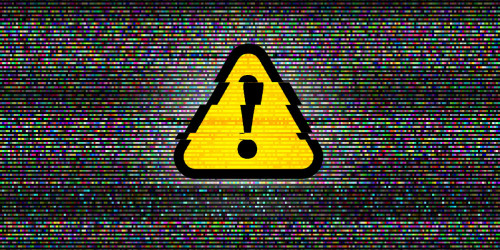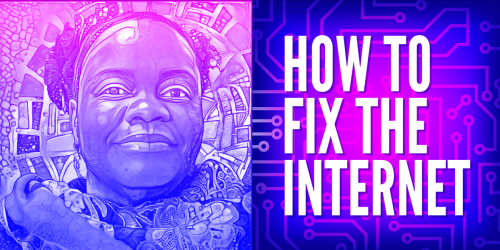Coordinated enforcement of intellectual property (IP) rights—copyright, patents and trade marks—has been an elusive goal for Europe. Back in 2005, the European Commission struggled to introduce a directive known as IPRED2 that would criminalize commercial-scale IP infringements, but abandoned the attempt in 2010 due to jurisdictional problems. IP maximalists took another run at it through ACTA, the Anti-Counterfeiting Trade Agreement, but that misguided treaty was roundly defeated in 2012 when the European Parliament rejected it, 478 votes to 39.
Undeterred, the European Commission is trying once again. This time, it is trying to avoid a similarly humiliating defeat in Parliament by focusing on non-legislative strategies. But its effort to sidestep Parliament also means less political or judicial oversight. So it behooves us to take a close look at what is being proposed.
Intermediary enforcement
The most significant item of the Commission's 10 point action plan is the proposal to conclude "Memoranda of Understanding to address the profits of commercial scale IP infringements in the online environment, following Stakeholder Dialogues involving advertising service providers, payment services and shippers." For example, such Memoranda of Understanding might commit payment intermediaries or advertisers to undertake that they will not accept payments or run advertisements for a site accused of hosting infringing material, thereby depriving those sites of revenue.
This strategy is touted in an accompanying communication as a "a rapid response mechanism to the IP infringement problem", since intermediaries can step in to halt alleged infringements much more quickly than it would take judges, who have to go to the time and trouble of actually hearing evidence from both sides and who are trained in copyright law.
The Commission describes this strategy for IP enforcement as a "follow the money" approach. Superficially, this perhaps sounds reasonable. But look closer at what "the money" really means. It does not—as you might expect—mean only targeting those who are making money from copyright infringement. Instead, it extends to anyone accused of infringing copyright on a "commercial scale."
This is where things get muddy, because there is no agreed definition within Europe of "commercial scale." Indeed, this lack of consensus was the motivation behind the failed IPRED2 directive. We do, however, have a good idea what the Commission would like "commercial scale" to include: any large-scale infringement "in which the professional organization of the activity, for example systematic cooperation with other persons, indicates a business dimension".
That potentially includes an incredibly broad swathe of non-commercial activity, including the hosting of fan art and fan fiction, fansubs and remixes—remembering that Europe, unlike the US, does not have a "fair use" copyright limitation. Indeed, the Commission has admitted that "it is difficult to determine in the abstract which acts of wilful trademark counterfeiting or copyright piracy are not 'on a commercial scale'", allowing only that "occasional acts of a purely private nature carried out by end-consumers normally would not constitute 'commercial scale' activities".
The danger that non-commercial, transformative activity will be swept up in the copyright enforcement frenzy is not merely theoretical. Last week it was revealed that 15 Korean fan subtitlers could face up to 5 years jail in exchange for the time and effort they have devoted to popularizing their favorite soap operas. (Whilst you might wonder what this has to do with the EU, it was in partly in response to its Free Trade Agreement with the EU that Korean copyright law was amended in 2011 to raise criminal penalties to this level.)
Admittedly, the European Commission's latest action plan is not about imprisoning people. But it would lock up many non-commercial websites. Deprived of the ability to receive money from donations or advertisements to cover hosting expenses, popular sites that host user-generated content may have no choice but to close.
Another option
There is an easier way in which the European Commission could avoid sweeping noncommercial and publicly beneficial uses in the enforcement net, and it wouldn't require any extra enforcement resources at all. The solution is simply to make such content legal. Currently, the copyright limitations and exceptions allowed under EU law are itemized in Article 5 of its InfoSoc Directive, and although the list is quite detailed ("use in connection with the demonstration or repair of equipment", for instance), it does not contain the flexible copyright limitations that can help protect most mash-ups, remixes and fan works.
Modern copyright laws need to leave space for such new uses that don't unfairly detract from existing commercial markets for copyright works. In the United States and a growing number of other countries, this space is provided by flexible copyright limitations such as fair use.
Earlier this year, the European Commission wrapped up an online public consultation on the future of copyright in Europe, which garnered an amazing 11,117 responses. Many of those responses called for the modernization of European copyright law, including the introduction of new and updated copyright limitations and exceptions that would be better suited for the digital environment, such as an open-ended fair use exception or a more limited exception for user-generated content (UGC).
Although no response to that consultation has yet been officially released, we can get an inkling of how the Commission might view these proposals for reform from the recently leaked draft of a whitepaper that examines areas of EU copyright policy for possible review.
The whitepaper claims that there is "a lack of evidence that the current legal framework for copyright puts a break on or inhibits UGC" and recommends merely that the EU "clarify the application of relevant exceptions as they exist in EU law" and promote "licensing mechanisms…for those uses that clearly do not fall into these exceptions". (As to the latter, the Licenses for Europe consultation aimed at filling the digital deficits in copyright law through licensing was last year boycotted by civil society groups due to the artificially narrow scope of the exercise.)
Similar reticence towards copyright law reform was demonstrated by the Commission this week at WIPO where its representative made a very clear statement that it was not willing to consider work leading to international instrument for limitations and exceptions for libraries and archives; doubling down on a position it adopted at the previous meeting of the same WIPO committee.
This does not paint a positive picture of the future of copyright in Europe. A single-minded focus on enforcement, even when limited to supposedly commercial scale infringements, will do little to foster innovation and creativity, and may indeed achieve the opposite effect. Rather than simply pandering to the IP enforcement lobby, Europe needs to start thinking outside the box—something that its talented fan artists, writers and remixers have been doing for years, in the shadow of an outdated copyright regime.









